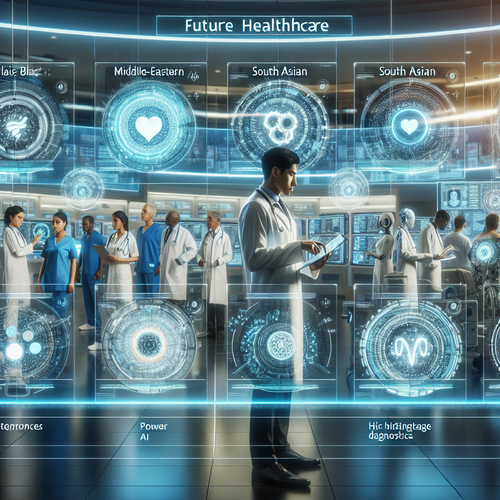
The Future of AI-Powered Healthcare: Innovations and Impacts
The Future of AI-Powered Healthcare: Innovations and Impacts
Introduction
Artificial Intelligence (AI) is no longer just a futuristic concept; it’s becoming an integral part of the healthcare system. As healthcare professionals strive for efficiency and accuracy, AI technologies are blazing trails in diagnostics, treatment plans, and patient management.
The Role of AI in Healthcare Innovations
AI’s application in healthcare is vast and continuously evolving. From improving diagnostics through data analysis to revolutionizing patient engagement, AI technologies give rise to innovative solutions.
1. Enhanced Diagnostics
AI algorithms are designed to evaluate vast amounts of medical data rapidly. For example, deep learning models analyze medical images to detect conditions such as cancer more accurately and earlier than traditional methods. This advanced capability can significantly improve patient outcomes.
2. Personalized Treatment Plans
AI’s ability to process data enables the development of tailored treatment strategies. By analyzing genetic information, lifestyle factors, and other health indicators, AI provides healthcare professionals with insights into the most effective treatment for individual patients.
3. Efficient Patient Management
The integration of AI chatbots in healthcare systems enhances patient interactions by providing immediate support. These bots assist patients in scheduling appointments, answering their queries, and even monitoring symptoms, minimizing the workload on healthcare staff.
AI in Telemedicine
The COVID-19 pandemic accelerated the adoption of telemedicine, and AI plays a crucial role in enhancing remote patient care. AI-driven platforms assist healthcare providers by analyzing patient data in real-time, facilitating quick and informed decisions.
Real-World Applications of AI in Healthcare
- AI-Powered Wearables: Devices that monitor vital signs and alert users and healthcare professionals in case of abnormalities.
- Predictive Analytics: AI algorithms predict patient deterioration, enabling preemptive medical interventions.
- Medication Management: AI assists in managing chronic diseases by reminding patients to adhere to their medication schedules.
Challenges and Considerations
While the advantages of AI in healthcare are clear, there are significant challenges that need to be addressed:
- Data Privacy: The implementation of AI necessitates rigorous data security measures to protect patient confidentiality.
- Bias in AI Algorithms: Ensuring diversity in training data is essential to mitigate any biases and ensure fair treatment outcomes.
- Integration with Existing Systems: Merging AI technologies with current healthcare systems requires careful planning and execution.
Conclusion
The future of AI in healthcare promises to reshape how providers deliver care, enhancing patient outcomes through precision and efficiency. As these technologies continue to advance, it is vital for stakeholders to collaborate in addressing challenges and making the most of AI’s potential.
For additional insights into the intersection of AI and healthcare, refer to our article on Exploring the Role of AI in Telemedicine.













